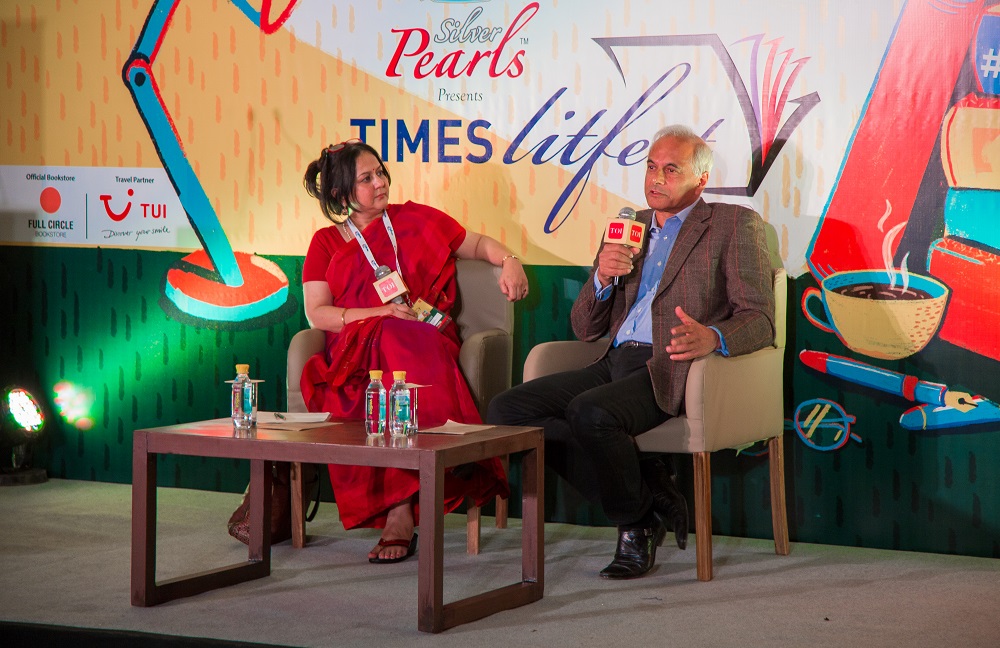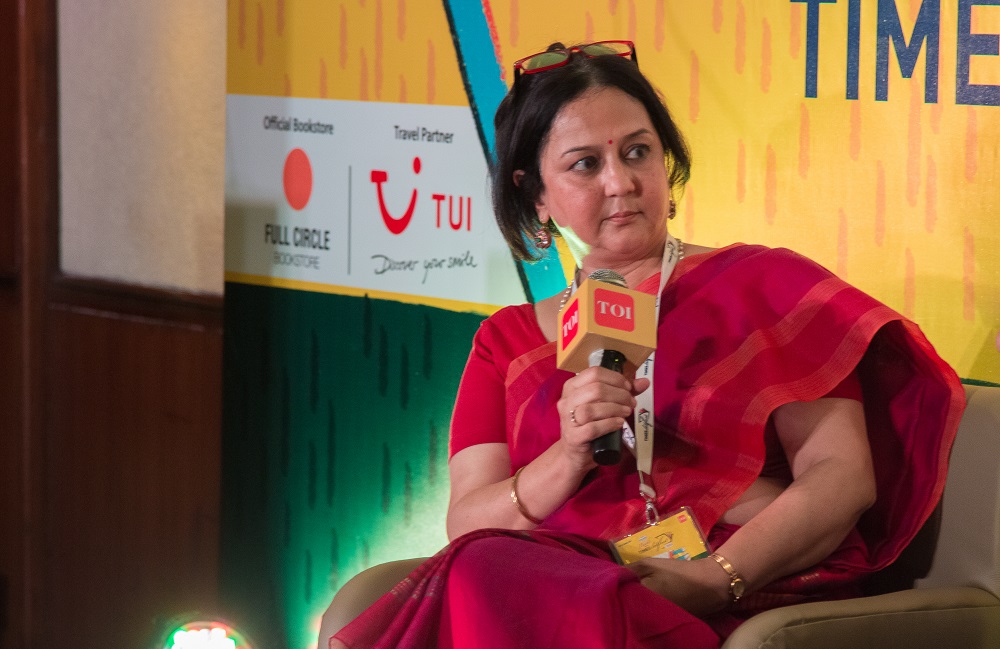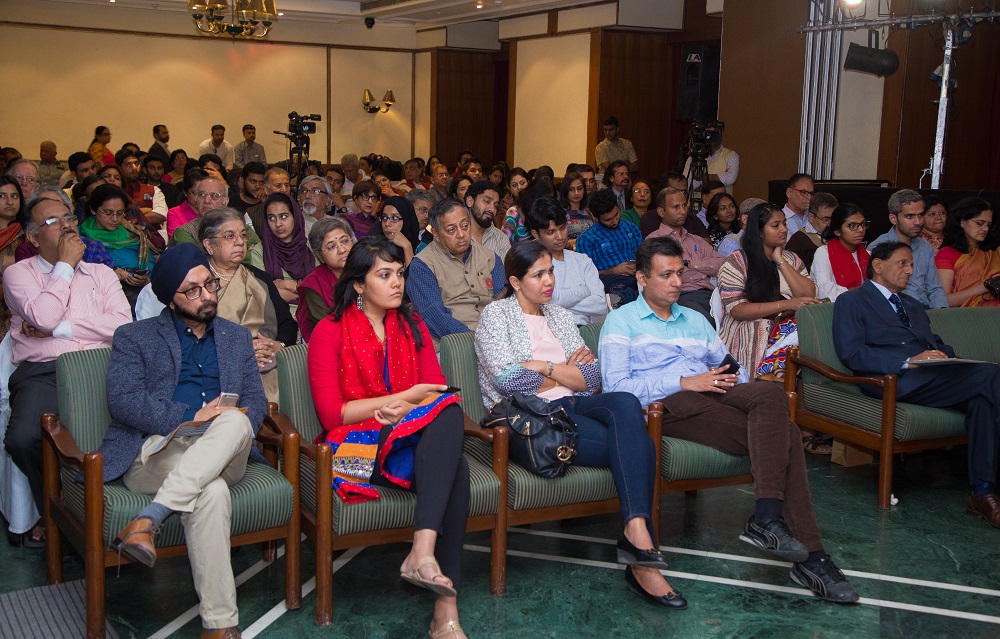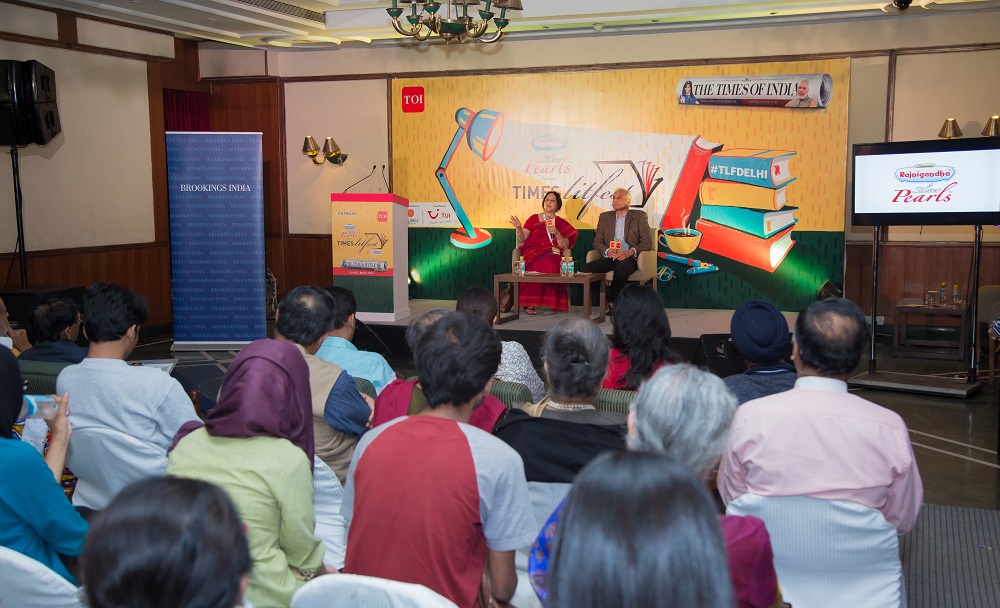

3:00 am IST - 4:00 am IST
Past Event
Content from the Brookings Institution India Center is now archived. After seven years of an impactful partnership, as of September 11, 2020, Brookings India is now the Centre for Social and Economic Progress, an independent public policy institution based in India.
Event Report
Brookings India curated a session at the Times Lit Fest-Delhi 2016 titled “India’s uber-rich: How should they behave?” featuring Rohini Nilekani and Brookings India Chairman Vikram Singh Mehta. Rohini Nilekani is Chairperson and Founder, Arghyam, a public charitable foundation based in Bengaluru.
The ‘uber rich’ were described as the multi-millionaires and billionaires for the session. Today, there is unprecedented wealth and inequality. A Credit Suisse report states that 1 per cent of India’s population own 60 per cent of India’s wealth.
Rohini Nilekani suggested that the model of philanthropy in India should change, with a clear use of the money and purpose of philanthropy. In earlier times, the uber rich in India donated their money to favourite temple or hospital, or contributed to areas around their projects. Some more enlightened business houses in India invested in social infrastructure. While philanthropy was not an agenda in the past, post-liberalisation brought an explosion in sunrise sectors such as the IT and Pharma sectors. Old industrial families capitalised the opportunity to consolidate old wealth and gain more wealth in the past 25 years. Attitudes changed of acting beyond cheque signing.
Ms Nilekani suggested that the wealthy use their wealth, time and talent to at least initiate thinking on problems, if not solve them. India has a thriving civil society culture, with many organisations working closely with people on the ground. Philanthropy can focus on doing some strategic work in sectors to support organisation work and innovations. Ms Nilekani mentioned her work with the Akshara Foundation in Karnataka, whereby she invested a lot of time to universalise the basic right of education for every child. In the process, she learned how to get into a sector at scale, and how to build partnerships with wealthy individuals, the state government, civil society organisations, parents, teachers and school systems.
With reference to the book “Why Nations Fail” by Daron Acemoğlu and James A. Robinson, Mr. Mehta explained that the reasons why nations fail is because there is a lack of appropriate institutions to implement policies. There might be good policies, but bad institutions would result in bad results. When addressing social issues, there is a need to address institutions of governance at different levels. Unless institutions create an enabling environment for NGOs or wealthy people to work effectively, the result is going to be suboptimal.
Any sector in India has governance failures and so efforts need to address these problems through institutional mechanisms. Rohini Nilekani set up Arghyam in 2001 to work on water issues. There is a lack of adequate institutional infrastructure to manage groundwater in India. Water is one of the most unregulated resources in India. In the absence of institutional design, some of Arghyam’s work is to support activities to ensure that citizens behave in a more water-wise way. Arghyam supports a lot of organisations doing participatory ground water management. Learning from success and experience, Arghyam is now influencing public policy through promoting the creation of better ground water management laws and institutions.
How the uber rich behave is a function of how many opportunities exist in their society. Taxation is a key issue, and the uber rich should put their money in a public fund or be taxed. India is one of the least taxed countries in the world. Is India ready for an inheritance tax?
Rohini Nilekani mentioned the Bill and Melinda Gates foundation for making big investments in the social sector, suggesting that the real opportunity for the uber rich is to absorb risk and innovate, as governments cannot take such risks. Notably, Mr. Mehta suggested that big problems cannot be solved unless stakeholders move step by step in the right direction. There is a need to conduct philanthropy through partnerships with beneficiaries, corporations, civil society and government.
The role of business entities and individuals who have wealth should not be mixed. Research suggests that there are employees who want to work for companies that are ethical and practice philanthropy by working in their communities. This is a good incentive for corporates. Leaders are far more aware about generating value for their stakeholders than on maximising value for shareholders. Now corporate governance create value for a much larger community of interested people. Philanthropy is not simply about altruism but also good business as reputation is important and stock prices are affected.
There is a concern about philanthropy not teaching beneficiaries ‘how to fish’. Building an ecosystem of giving and working with a growing number of intermediary organisations in India will help donors to know about issues and organisations working in the space, and also make informed choices. The CSR law will drive the building of such an ecosystem.
Knowledge is important to transform sectors and technology can be used to solve local problems. Technologies have broken down barriers and helped people to collaborate. Leadership is required to collaborate with people at the bottom of the pyramid and achieve goals. There is optimism about the future as individuals such as Rohini Nilekani ‘walk the talk’.
Like other products of the Brookings Institution India Center, this report is intended to contribute to discussion and stimulate debate on important issues. The views are of the author(s). Brookings India does not have any institutional views.
Venue: India Habitat Centre
Public Event





Rahul Tongia, Anurag Sehgal, Puneet Kamboj
2020
Online Only
Tuesday, 3:00 am - 4:40 am IST

Saneet Chakradeo
August 18, 2020